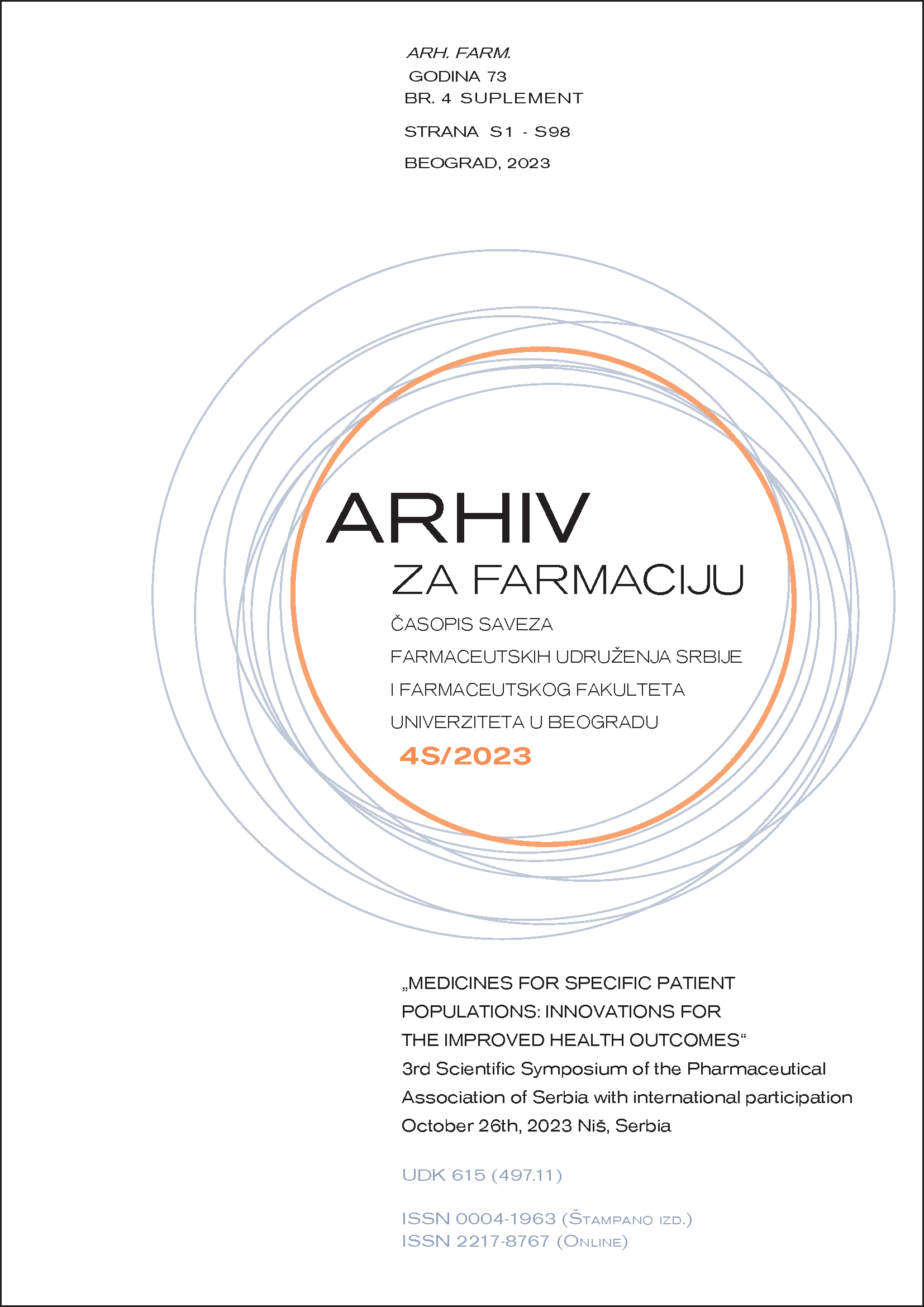ANTIMICROBIAL POTENTIAL OF BENZALDOXIMES: SYNTHESIS, BIOLOGICAL ACTIVITY AND IN SILICO STUDY
Abstract
Oximes are found in plants and animals where are either part of the defense system or participate in olfactory communication. Oximes are intermediates in the biosynthesis of a large number of metabolites and are among the products of enzymatic oxidation and decarboxylation of amino acids. With many applications in synthetic chemistry they stand as an important class of organic compounds. Being a H-bond donor and an acceptor, oxime funcionality enables interaction with biological targets, exibiting a wide range of biological activities: antimicrobial, anti-inflammatory, antioxidant and anticancer (1). As oxime derivatives represent suitable candidates for development of new antimicrobial drugs, we synthesized several benzaldoximes by condensation of benzaldehyde and hydroxylamine salt (2). Antimicrobial activity of compounds was tested in a micro-dilution assay (3) on laboratory-controlled strains of microorganisms: Bacillus subtilis, Staphylococcus aureus, Aspergillus niger and Candida albicans. With a purpose of estimating physicochemical, pharmacokinetic and toxicological profile, in silico predictions using SwissADME and DataWarrior were made. Compounds didn’t affect the growth of bacterial strains, however inhibited the growth of C. albicans and A. niger (tested range 62.5-500 µg ml-1 and 125-500 µg ml-1). From the obtained results, the fungistatic potential of benzaldoximes substituted with electronegative polar groups can be observed, while in silico studies indicate mostly favorable characteristics of benzaldoximes we synthesized.
References
1. Schepetkin IA, Plotnikov MB, Khlebnikov AI, Plotnikova TM, Quinn MT. Oximes: Novel therapeutics with anticancer and anti-inflammatory potential. Biomolecules 2021; 11: 777.
2. Vogel AI. Vogel’s textbook of practical organic chemistry, 5th ed., revised by Furniss BS, Hannaford AJ, Smith PWG, Tatchell AR. London: Longman Scientific & Technical; 1989. p. 1048.
3. NCCLS Performance Standards for Antimicrobial Disk Susceptibility Test, 6th ed., National Committee for Clinical Laboratory Standards, approved standard: P. A. Wayne, M100-S11, 1997.

